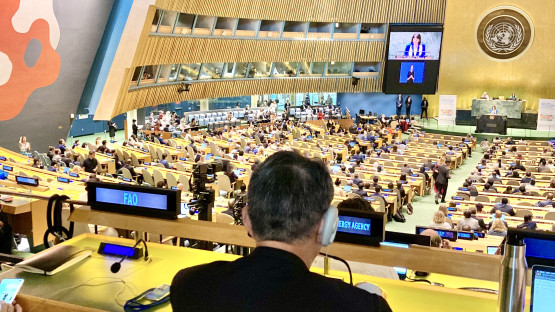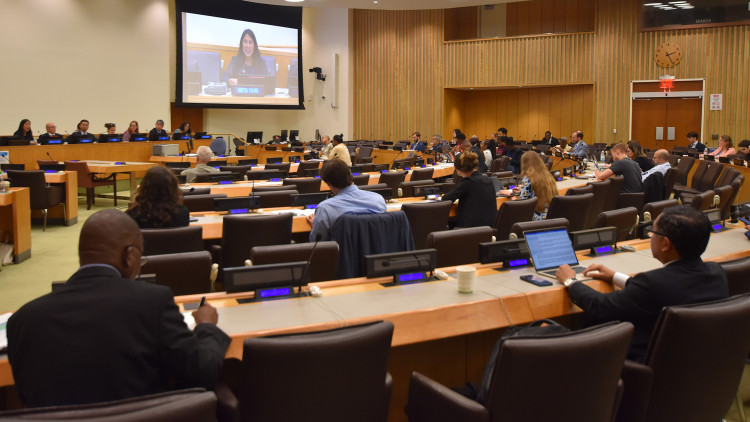The United Nations High-Level Political Forum on Sustainable Development heard how IAEA support helps countries reach the Global Goals in energy, food, health, water and more. At the latest forum in July 2024, the IAEA presented its ongoing initiatives at targeted UN plenary sessions on topics that included food security, energy planning and Sustainable Development Goal (SDG) progress in Africa and Small Island Developing States (SIDS). The IAEA also led a side event on climate action and hosted a complementary exhibition.
“Nuclear science, technology and innovation is a critical component of sustainable development, carrying the potential to accelerate the pace and weight of progress in several sectors, from energy and decarbonization, to food security and agriculture, to healthcare and disease control, to water management and protection, industry and innovation, disaster response and resilience,” said Hua Liu, IAEA Deputy Director General and Head of the Department of Technical Cooperation, addressing the UN plenary.
Each year the UN High-Level Political Forum provides a platform for the review of progress towards a selection of the 17 SDGs, with this year’s forum focused on five– SDG-1 (‘No Poverty’), SDG-2 (‘End Hunger’), SDG-13 (‘Climate Action’), SDG-16 (‘Peace, Justice and Strong Institutions’) and SDG-17 (‘Partnerships for the Goal’). There was a particular focus across all the SDG discussions on the solutions afforded by science, technology and innovation.
The Antigua and Barbuda Agenda, adopted at the recent 4th International Conference on SIDS, also places an emphasis on the importance of science, technology and innovation in addressing the unique development challenges faced by SIDS. In his plenary intervention on SIDS, Deputy Director General Liu described the recent IAEA commitment of 13.7 million euros in support to 26 SIDS that was made earlier this year. “We want to unlock the full potential of our innovative solutions and concretely help build a more resilient, sustainable and prosperous future for the SIDS,” said Hua Liu, IAEA Deputy Director General and Head of the Department of Technical Cooperation.









